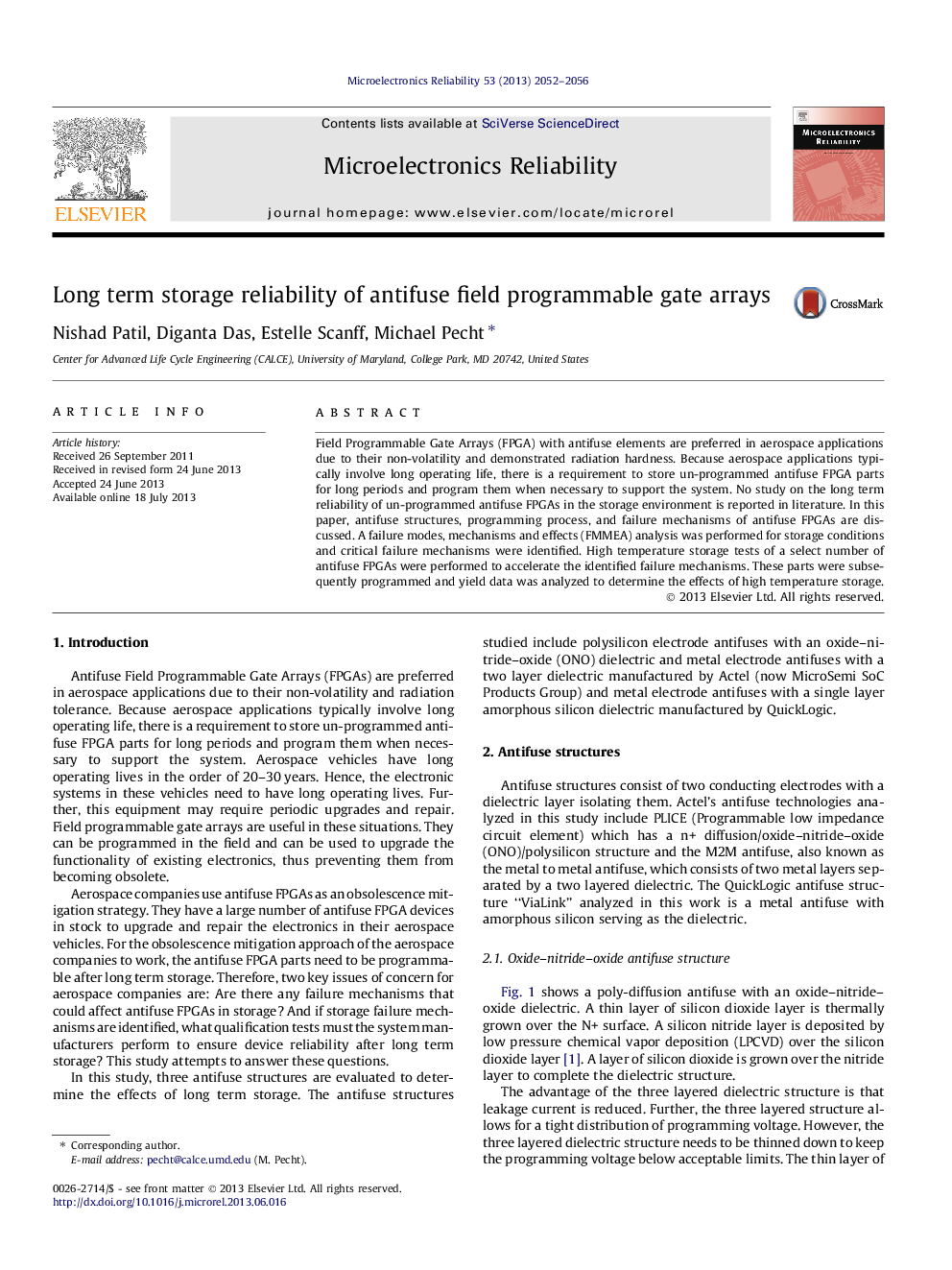| Article ID | Journal | Published Year | Pages | File Type |
|---|---|---|---|---|
| 10364769 | Microelectronics Reliability | 2013 | 5 Pages |
Abstract
Field Programmable Gate Arrays (FPGA) with antifuse elements are preferred in aerospace applications due to their non-volatility and demonstrated radiation hardness. Because aerospace applications typically involve long operating life, there is a requirement to store un-programmed antifuse FPGA parts for long periods and program them when necessary to support the system. No study on the long term reliability of un-programmed antifuse FPGAs in the storage environment is reported in literature. In this paper, antifuse structures, programming process, and failure mechanisms of antifuse FPGAs are discussed. A failure modes, mechanisms and effects (FMMEA) analysis was performed for storage conditions and critical failure mechanisms were identified. High temperature storage tests of a select number of antifuse FPGAs were performed to accelerate the identified failure mechanisms. These parts were subsequently programmed and yield data was analyzed to determine the effects of high temperature storage.
Related Topics
Physical Sciences and Engineering
Computer Science
Hardware and Architecture
Authors
Nishad Patil, Diganta Das, Estelle Scanff, Michael Pecht,
